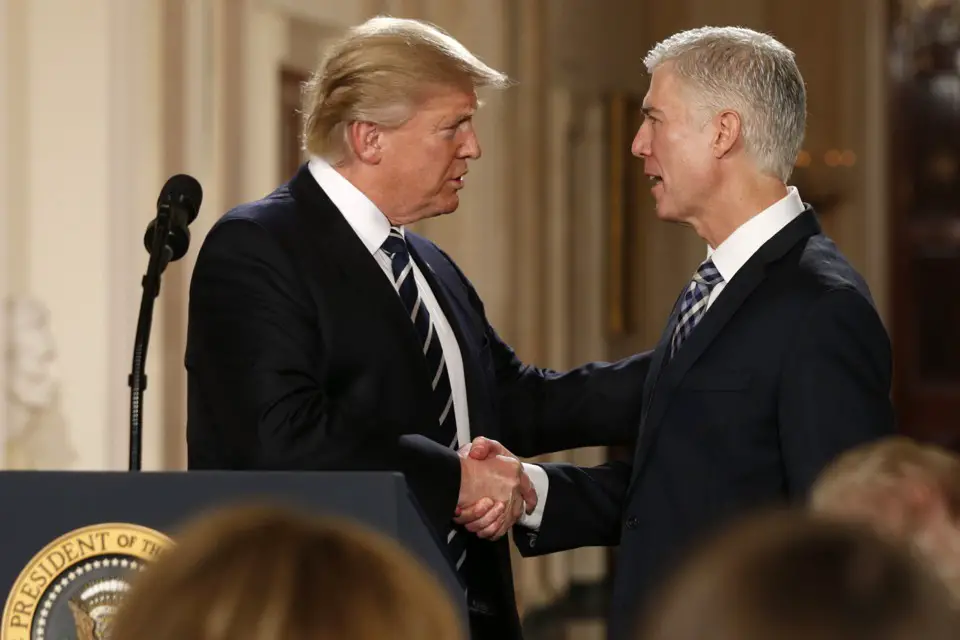These days, it seems politics have been degraded to name calling, nitpicking and double standards. For example, in 2016, Senate Republicans refused to hold hearings or even consider President Obama’s Supreme Court nominee, Merrick Garland. Yet, in 2017, while Senate Democrats condemned the Republicans for stopping Garland’s nomination, they launched an attempt to block President Trump’s Supreme Court nominee, Neil Gorsuch.
Partisanship has certainly reached an all-time high, with polls showing a greater polarization of the American public at large. The source of increased polarization in America is a topic for another day, but is it possible that this polarization is a necessary part of the democratic system?
America is fairly unique in that it employs a system of checks and balances. The country’s founders were convinced that the only good way to check the power of “bad” individuals in government is to pit their ambition against their fellow politicos. Thus, America was established with a complex federal system that has only become more layered and complex with time.
First, America has a divide between city, county, state and national governments as well as smaller units, like homeowner associations and school districts. But, America also has a variety of governmental institutions that check and balance each other with executive, legislative or judicial powers.
America’s government is complex, but it was intended to be that way, so it would be difficult for one individual to dominate the government. President Trump’s administration is proving that point.

Though he is now president, and Republicans control Congress, Democrats have still been able to stop some of Trump’s agenda in the courts, while states and cities are threatening to resist federal mandates on issues, like immigration, or enacting climate-change regulations in defiance of Trump.
So, do political parties function in a similar way to checks and balances? America’s founders had little concept of political parties, but they considered it important to pit “factions” against each other. Political parties may not only serve as a way of competing in elections and getting your candidate elected, but also as another check or balance on the government and people of power.
In America’s case, especially where the system is dominated by two parties, one party plays the role of the government, and one party plays the role of the opposition. During President Obama’s term in office, Democrats were the governing party, while Republicans served as the opposition, constantly holding their feet to the fire over the Benghazi incident, Operation Fast and Furious (no, not the movie), the IRS targeting of conservative groups and the discovery of how widespread the NSA’s surveillance efforts were.
Now that Republicans are the governing party, with Donald Trump in the White House, Democrats are “returning the favor” as the new opposition party. Led by Nancy Pelosi in the House and Chuck Schumer in the Senate, Democrats have called for investigations in ties between Trump’s campaign and Russia, while criticizing Trump’s appointees.
At almost every corner, Democrats have a criticism for the Trump Administration, and it was thanks to their united front that the Republican attempt to repeal Obamacare failed. Quite often, the attacks or criticism launched by either side is hypocritical.
Democrats often chide Republicans for being less democratic and censuring floor debate, yet when the Democrats were in power less than a decade ago, they exhibited the same behavior. Even the “nuclear option” that Republicans used to get Neil Gorsuch confirmed in the Senate was originally developed and utilized by Senate Democrats to get Obama’s appointees confirmed.

At the end of the day, many Americans seem disillusioned with the constant brinksmanship in politics. Yet, have you considered the fact that the opposition party plays a valuable role in criticizing our government, keeping them honest, shining the spotlight on them and asking tough questions that need to be asked?
Often, members of the governing party will not have the courage to stand up to the White House or their own party leader, even if they disagree with their actions. But, the opposition party has nothing to lose, and it can afford to take a critical stance against them.
Even at the risk of seeming petty, these opposing politicians serve as a living sandpaper that smooths the rough edges of America’s political system. Partisanship does often slow down the progress in the country’s capital, but it also makes it impossible for one faction to dominate the other and do whatever they want.
The opposition may not always be right or fair in their criticisms, just like the governing party isn’t always wrong or simply seeking power, but these opposing forces ensure that more often than not, the right decisions are made.
I am not saying that this is a perfect system that always renders good results, putting the American people first, nor am I saying that bipartisanship is a bad thing. Many times, in fact, bipartisanship is a good thing. But, the role of political parties in opposing and attacking each other is often for the greater good, ensuring the fair combat of ideas rather than the tyranny of an unopposed power cartel.

















